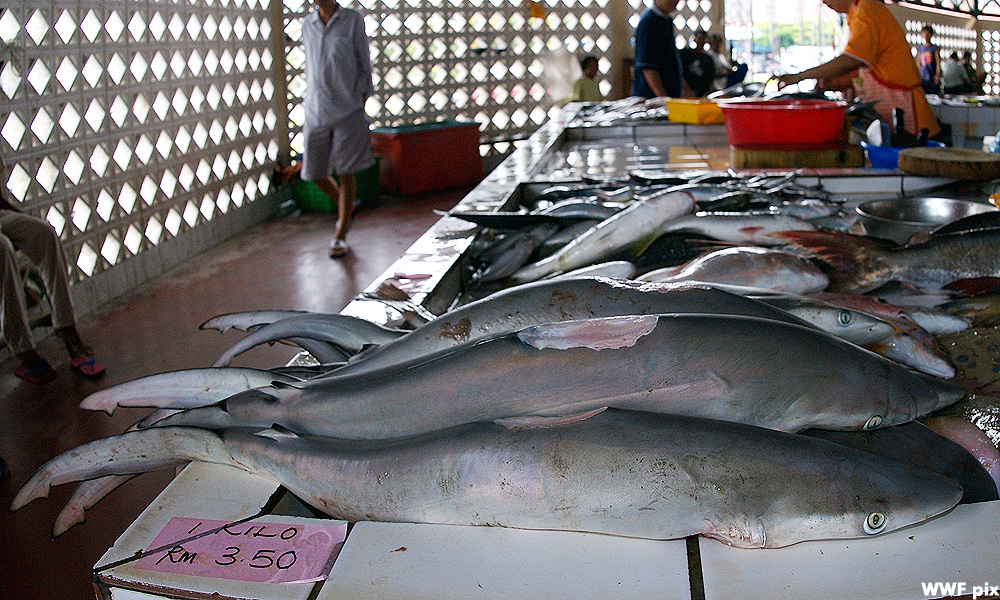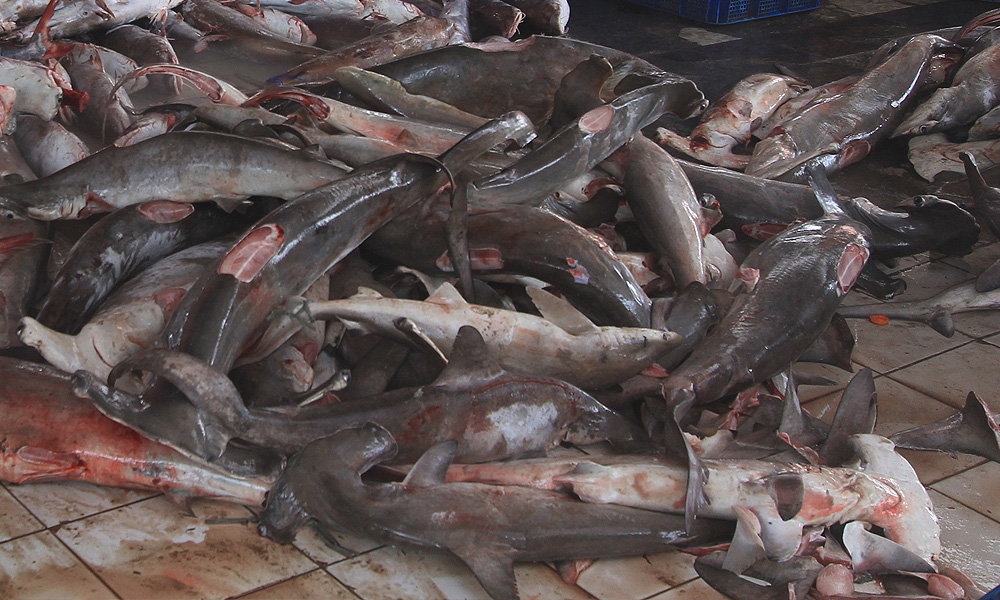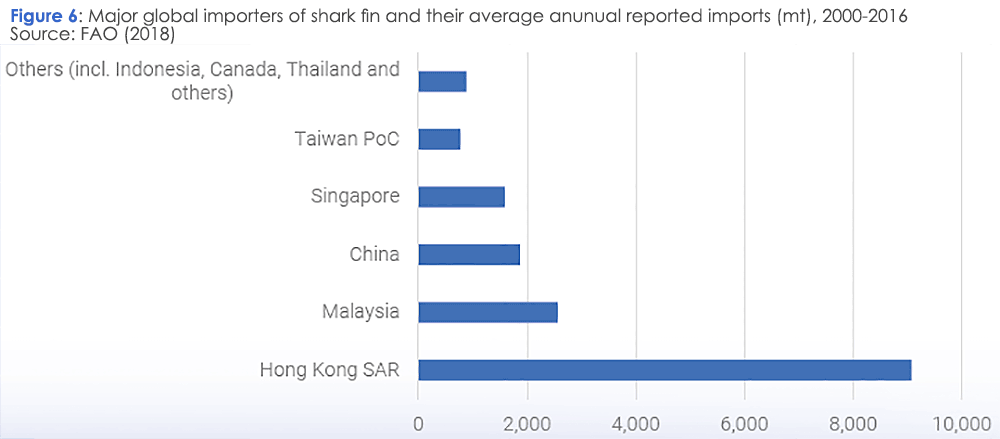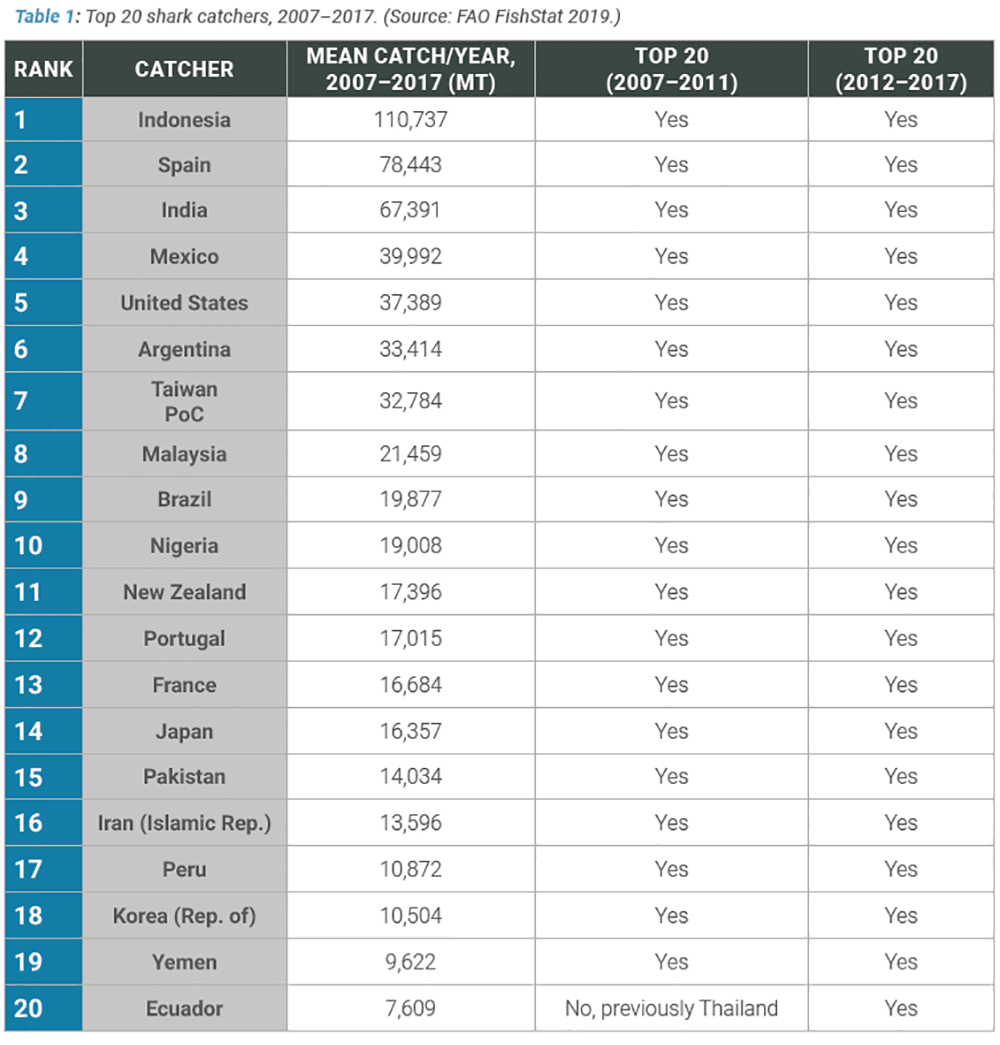
Malaysia is becoming “a more significant player” in the global shark fin trade as the second-largest importer in the world, according to world wildlife trade monitoring network Traffic.
In fact, Malaysiakini learnt that the country’s import of the controversial product increased by more than 2,800 metric tonnes (mt) in just over a decade ending 2016.
In a study released last week, it was stated the world’s four largest importers of shark fin are Hong Kong, Malaysia, mainland China, and Singapore.
The accumulative catch of the top four importers accounted for 90 percent of the average annual global imports of fins from 2000 to 2016, Traffic reported.
The study, entitled ‘An overview of major shark traders, catchers and species’, was authored by conservation biologist Nicola Okes and Traffic fisheries trade programme leader Glenn Sant.
Although ranked second, Malaysia, however, fell significantly behind Hong Kong which imported an average of 9,069 mt of shark fin a year over this period, compared to Malaysia’s average of 2,556 mt a year.
Even so, Traffic global communications coordinator Richard Thomas informed Malaysiakini that Malaysia had significantly increased the volume of imports from the year 2003 to 2016.
“Malaysia has over the years become a more significant player globally in terms of the catch of sharks and rays as the eighth largest and now the second-largest importer of shark fins.
“Malaysia imports of all shark fin types have increased from a low of 46 tonnes in 2003 to a high of 2,934 tonnes in 2016,” Thomas said in an email response, citing 2018 statistics from the Food and Agriculture Organisation of the United Nations (FAO).
The Traffic study also stated that as well as being among the world’s largest shark fin consumers, some major shark fin importers are key centres for processing dried and frozen fin imports, some of which are subsequently re-exported all over the world.
It cited an example of FAO data from 2019, in which an above-average import of shark fin in 2013 was found under the description of “shark fins, prepared or preserved by Malaysia”.
During that same year, global shark fin import almost doubled.
In 2014, the Malaysian government stated that although the country imports shark fins, it does not practice finning.

Finning is a process by which the fin is normally removed while the animal is still alive, with the rest of the shark being discarded.
It stated in 2013, only 7,833 tonnes of sharks were caught, which made up just 0.5 percent of the total marine fish catch in the country.
Yet in 2016, images circulated online depicting bloodied waters full of sharks which had been finned, purportedly on Mabul Island in Sabah. Malaysia has no law against shark-finning.
Malaysia is world’s eighth-largest shark catcher
According to the Traffic report findings, Malaysia was also ranked as the eighth-largest catcher of sharks in the world, according to data from 2007 to 2017.
This involved an annual average of 21,459 metric tonnes worth of shark catches - including skates, rays and chimaeras - which were reported to the FAO.
Indonesia tops the list of global shark catchers with a mean catch of 110,737mt during that period.
The top 20 shark catchers, including Malaysia, are responsible for 91 percent of global average annual imports from 2008 to 2017, according to the report.
Catches are primarily exported as fresh or frozen meat, or dried or frozen fins, the report stated.
Consumption of shark fin remains popular in Asia, especially in Chinese communities where shark fin soup is traditionally served during important occasions such as weddings.
However, it is controversial in many other parts of the world.
Conservationists and animal rights groups cite the reported decline in the shark population as well as the cruelty involved in finning a shark.
Traffic explained that sharks are vulnerable to overfishing due to slow growth, relatively late age of maturity, and low fecundity. Up to 17 percent of shark and ray species are listed as endangered or vulnerable under the International Union for Conservation of Nature (IUCN) Red List of Threatened Species.
In its study, Traffic listed lack of species specificity in reporting by catchers as one of the many problems facing the conservation of sharks and rays.
This, it said, hampers identification of species in decline and placement of adequate measures by relevant countries to address the matter.
Although the harvest of shark fin and meat is permitted in Malaysia, Thomas told Malaysiakini that the main countries involved in catching sharks must ensure monitoring and management measures are in place to protect the species from overfishing or from being harvested illegally.

Thomas said: “We identify the main catchers and traders as there is a responsibility which goes along with it to ensure that what you catch and trade have adequate monitoring and management measures in place to ensure sustainability and the legality of catches.
“That includes the provenance of products which are imported and why traceability is such a critical need to ensure products do come from sustainable and legal sources.”
It was reported last month that Malaysia was among 40 countries which objected to Mexico's proposal to protect 18 shark species by imposing rules for sustainable trade.
Over 100 other participating countries voted in favour of the proposal at the conference regarding the Convention on the International Trade in Endangered Species of Wild Fauna and Flora (Cites).
Malaysia is a signatory of the convention.
The Fisheries Department later defended the move, stating the species involved were not "targeted species," but are obtained by catch, meaning that they are caught unintentionally when other species are targeted.
The department said the Malaysian delegation, represented by the Water, Land and Natural Resources Ministry, also took into account views of shark experts in the region. It was reported, however, that out of 18 species being discussed, only guitarfish and wedgefish are present in Malaysian waters.
It was reported recently that four shark species and two ray species had been listed as endangered under the newly amended Fisheries (Control of Endangered Species of Fish) (Amendment) Regulations 2019.
Previously, the whale shark was the only shark species listed as threatened under the Fisheries (Control of Endangered Species of Fish) Regulations 1999, Fisheries Act 1985. -Mkini




No comments:
Post a Comment
Note: Only a member of this blog may post a comment.